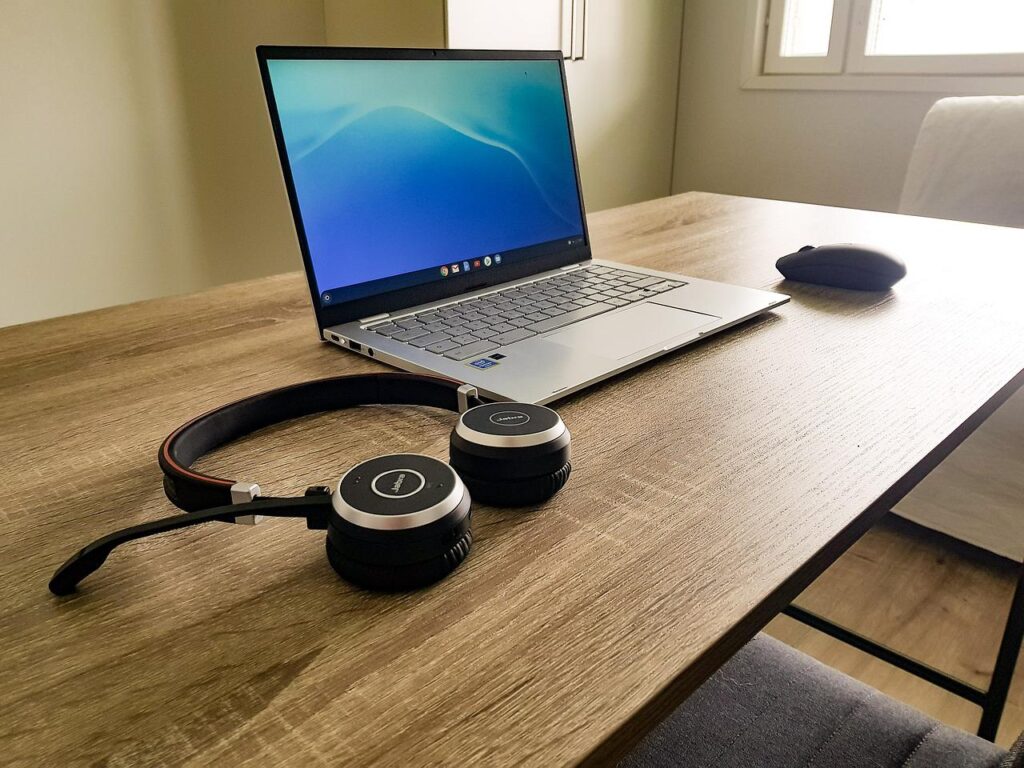
Are you getting frustrated because your boss wants you in the office more often than you’d like? Remote work is here to stay since COVID disrupted our ways of living and working. Nevertheless, many companies are still resisting and forcing people to look for other options. One of these options is remote court reporting jobs. If you haven’t researched this yet, you’ll soon read why it should be on the top of your list.
How Remote Court Reporting Jobs Work
Court reporters are a highly regarded group of professionals who are officers of the courts. Their primary responsibility is to record everything that’s said during a deposition. On top of that, they work with the lawyers to set everything up for those depositions.
Remote court reporting jobs don’t just involve transcribing court proceedings. As a court reporter, you also research industry context around trials and depositions to be able to follow more accurately what’s being said while also getting a heads up on any special jargon that might come up. Understanding what’s going on in the courtroom makes it easier to transcribe effectively.
Researching depositions is also highly motivating because you learn about industry trends or new pharmaceutical products about to be launched, for example. In fact, you can find yourself involved in cases that cover anything from Intellectual Property to corporate espionage and medical malpractice. Moreover, you’ll liaise with various fascinating people including forensic experts, among many more.
To make all this happen, remote court reporting jobs require you to manage the potential challenges of remote depositions. Of course, there are huge benefits to working remotely. Regardless, it does involve a slightly different way of working.
Bear these tips in mind as you prepare yourself for remote court reporting jobs:
- Test equipment beforehand
- Headphones
- Call-in option
Test equipment beforehand
It goes without saying that technical equipment sometimes stops working. A key responsibility within remote court reporting jobs is to support the courts by checking that everything works. Court reporters support logistics in general and make sure everyone turns up at the right time.
Headphones
Video conferencing technology is of a high standard these days. Nevertheless, you can improve the quality of a deposition by ensuring everyone wears headphones. Another good practice to implement is to ask everyone to turn off their notifications. That avoids hearing those irritating little blips during depositions.
Call-in option
If your internet is patchy, you can dial into a video call with a landline or mobile. Sometimes it’s worth keeping this option in mind as a backup for when quality starts fading.
The Benefits of Remote Court Reporting Jobs
All remote jobs bring the added benefit that you can work in whatever environment motivates you. All you have to do is to make sure that you have a high-speed internet connection along with excellent equipment.
In terms of equipment, court reporters work with various audio and video devices. The most common device is the stenograph machine. This shorthand machine is like a typewriter although these days, you can connect it to a laptop with specialist software.
The most widely used software for remote court reporting jobs is CAT or Computer Aided Transcription software. This translates voice-to-text technology so that the computer converts your shorthand strokes into proper sentences. You can then produce real-time transcripts although you’ll still have to do final proofreading before you sign it off.
Working with such equipment is motivating for many because you’re at the forefront of technology. Although, you’re also a key player in getting that technology to function at its best. Court reporters will always be needed to take the final responsibility of certifying a transcript. Moreover, digital technology can’t transcribe as accurately as court reporters.
That takes us to one of the key benefits of remote court reporting jobs. Essentially, you’ll always be in demand as people will always need official proceedings to be recorded. Furthermore, the industry needs new court reporters because many of its current ones are at retirement age.
Other than always being in demand, you’ll also experience these benefits:
- Variety
- Flexibility
- Long-term opportunities
Variety
Remote court reporting jobs expose you to different aspects of the law. You could also find yourself in the middle of a high-profile case reported in the media. Those can be exciting and you’ll also constantly be learning.
Flexibility
Remote court reporting jobs allow you to work anywhere. You can even enjoy an exotic lifestyle on the coast somewhere warm.
Long-term opportunities
With court reporters in demand, the industry isn’t going anywhere. Moreover, other industries have a need for reporters so you’ll always have choices when it comes to working. These industries include, for example, sports and conferencing services, among others.

Becoming a Court Reporter
It’s always helpful reviewing online lists of remote court reporting to understand the requirements. Although, you’ll soon see that you need an active license showing that you’re a certified shorthand reporter.
At this point, you have a choice in how you manage your transition to remote court reporting jobs. First, you can start by completing a shorthand course which can take between 6 to 12 months. This gives you the first opening in transcription jobs.
Secondly, you can review how to become a fully certified court reporter. This can take anywhere between 2 to 4 years although you can work as a trainee at the same time. The National Court Reporters Association also offers support to people to help them find mentorship programs.
It’s also worth noting that different states have different requirements. You might therefore need both a national license and a state license. Although, remember that this also gives you more opportunities as a remote court reporter. Essentially, you can choose to work independently across several states.
Either way, these are the key steps in becoming a court reporter which can get you salaries averaging around $60,000:
- Complete a relevant career
- Find an accredited court reporter program
- Pass the National Court Reporters Association (NCRA) exam
- Get licensed and certified
Complete a relevant career
To become a certified court reporter, you need at least a Bachelor’s degree. The most helpful ones tend to be English or communications, for example.
Find an accredited court reporting program
You’ll easily find various programs online that cover different aspects of technology. Simply check that the program you’re interested in is accredited in your state.
Pass the National Court Reporters Association (NCRA) exam
In this exam, you have to submit a transcript for a literary, jury charge, and testimony event that has to be at least 95% accurate. In addition, you have a written exam on industry practices, technology, and ethics, among other subjects.
Get licensed and certified
Once you pass the exam, you’re a licensed and registered professional reporter. As mentioned, you can then look for jobs with a mentorship program to help you gain experience while being supported.

Managing your Court Reporting Career
All careers can be optimized if managed properly. For example, you can develop a niche in medical malpractices or multi-lingual cases. You can still work on general cases but having a niche gives you an edge.
At this point, you might also consider becoming a freelance court reporter. You can then apply to part-time remote jobs and manage your client portfolio as you wish. Naturally, this tends to be a better option for more experienced court reporters who also already have a network to tap into. Nevertheless, with remote work platforms opening up, this option might still be available for you.
Proven ways to optimize your career include the following:
- Network
- Ongoing development
- Attend industry webinars (trends)
Network
We all need help during our careers. Sometimes we need people to ask them questions. At other times, it’s to get you the introductions you need to get your next job. Court reporters are also a very friendly group with many support groups on social media where people make friends for life.
Ongoing development
The National Court Reporters Association provides many opportunities to learn new technologies or to improve your soft skills. We all need to keep improving and court reporters always need to fine-tune their skills such as attention to detail and time management.
Attend industry webinars
A great way to learn about what’s happening in the industry is to attend webinars. This gives you the added advantage that you expand your network. Both of these aspects help you plan for future career moves.
Final Thoughts on Remote Court Reporting Jobs
A court reporting career gives you flexibility and variety. You’ll always be learning something and you can manage your days exactly as you wish depending on which clients and jobs you choose. Naturally, you have to go through a training period. Nevertheless, keep an eye on the big picture to keep you motivated. Court reporters will always be in demand and with good salaries. Last but not least, you’ll be proud to be part of upholding the law and enabling people to live more harmoniously together.





